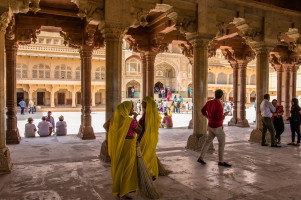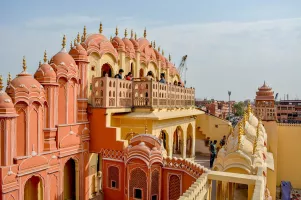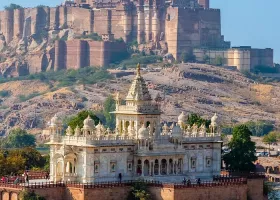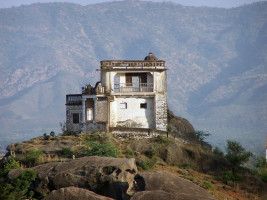Mount Vesuvius Travel Guide
Mount Vesuvius is a famous volcano located in Italy, near Naples. It is known for its eruption in AD 79, which destroyed the Roman cities of Pompeii and Herculaneum. The volcano's history, geography, and cultural significance make it a popular destination for tourists and history enthusiasts alike.Top Attractions in Mount Vesuvius
- Hiking to the summit of Mount Vesuvius
- Exploring the ruins of Pompeii
- Visiting the archaeological site of Herculaneum
- Enjoying the breathtaking views of the Bay of Naples
Mount Vesuvius is Famous for
Its catastrophic eruption in AD 79 that buried the cities of Pompeii and Herculaneum under a thick layer of volcanic ash and pumice.Top Attractions in Mount Vesuvius
- Hiking to the summit of Mount Vesuvius
- Exploring the ruins of Pompeii
- Visiting the archaeological site of Herculaneum
- Enjoying the breathtaking views of the Bay of Naples
What's Great about Travelling to Mount Vesuvius?
- History buffs will be fascinated by the archaeological sites
- Nature enthusiasts can enjoy hiking to the summit
- Stunning views of the Bay of Naples
What's Not So Great about Travelling to Mount Vesuvius?
- The area can be crowded with tourists
- Weather conditions on the volcano can be unpredictable
- Some areas may not be accessible to individuals with mobility issues
Travel Tips for Mount Vesuvius
- Wear comfortable shoes for hiking
- Check the weather forecast before visiting
- Follow safety guidelines provided by park authorities
Important Mount Vesuvius trip information
- Ideal Duration: A day trip is sufficient to explore the main attractions.
- Best Time to Visit: Spring and fall are ideal to avoid extreme temperatures.
- Nearby Airports and Railway Stations: The nearest airport is Naples International Airport, and the closest railway station is Naples Centrale.
Per Person
28,964
*EXCLUDING APPLICABLE TAXES Per Person
33,000
*EXCLUDING APPLICABLE TAXES 5.0 Ratings
( 108 Reviews )
( 108 Reviews )
Total
39,000
*EXCLUDING APPLICABLE TAXES 4.1 Ratings
( 56 Reviews )
( 56 Reviews )
Per Person
32,000
*EXCLUDING APPLICABLE TAXES 5.0 Ratings
( 108 Reviews )
( 108 Reviews )
Per Person
31,500
*EXCLUDING APPLICABLE TAXES 5.0 Ratings
( 108 Reviews )
( 108 Reviews )
Per Person
10,800
*EXCLUDING APPLICABLE TAXES FAQ's on Mount Vesuvius
Q1: What is the best time to visit Mount Vesuvius?
The best time to visit Mount Vesuvius is during the spring and fall months when the weather is mild and ideal for hiking. Summer can be hot, and winter may bring snow at higher elevations, affecting accessibility. Consider visiting in April-May or September-October to enjoy pleasant temperatures and beautiful landscapes.
Q2: Do I need a visa to travel to Mount Vesuvius?
As Mount Vesuvius is located in Italy, part of the Schengen Area, most tourists do not need a visa for short stays. However, visitors from non-EU countries should check visa requirements based on their nationality and the duration of their stay.
Q3: What are the must-visit attractions in Mount Vesuvius?
The top attractions in Mount Vesuvius include hiking to the crater, exploring the ruins of Pompeii and Herculaneum, visiting the Archaeological Museum of Naples, and enjoying the scenic views from the volcano's slopes.
Q4: Is Mount Vesuvius a safe place to travel?
Mount Vesuvius is generally safe for tourists, but it's essential to follow safety guidelines when hiking the volcano. Avoid restricted areas, be cautious of volcanic activity warnings, and stay informed about emergency procedures.
Q5: What is the local currency in Mount Vesuvius and can I use credit cards?
The local currency in Mount Vesuvius is the Euro (€). Credit cards are widely accepted in hotels, restaurants, and larger stores, but it's advisable to carry some cash for smaller establishments and markets. ATMs are also available in most tourist areas.
Q6: What is the local cuisine like in Mount Vesuvius?
The local cuisine around Mount Vesuvius features delicious Italian dishes such as Neapolitan pizza, pasta dishes like spaghetti alla puttanesca, fresh seafood, and local wines. Don't miss trying the famous limoncello liqueur and sfogliatella pastry.
Q7: What transportation options are available in Mount Vesuvius?
Transportation options in Mount Vesuvius include buses from nearby towns like Naples and Sorrento that can take you to the volcano's base. For exploring the region, renting a car is convenient, or you can opt for guided tours that include transportation.
Q8: Are there any cultural norms or etiquette I should be aware of when visiting Mount Vesuvius?
When visiting Mount Vesuvius and its surrounding areas, it's important to respect local customs such as greeting people with a handshake, dressing modestly when visiting religious sites, and showing appreciation for the local cuisine and traditions.
Q9: I am a travel agent. How can I buy travel leads of Mount Vesuvius?
Register yourself as a travel agent at agents.tripclap.com and then you can buy travel leads to Mount Vesuvius once your account is approved. For more details contact our support team at +91-8069186564 or support@tripclap.com






